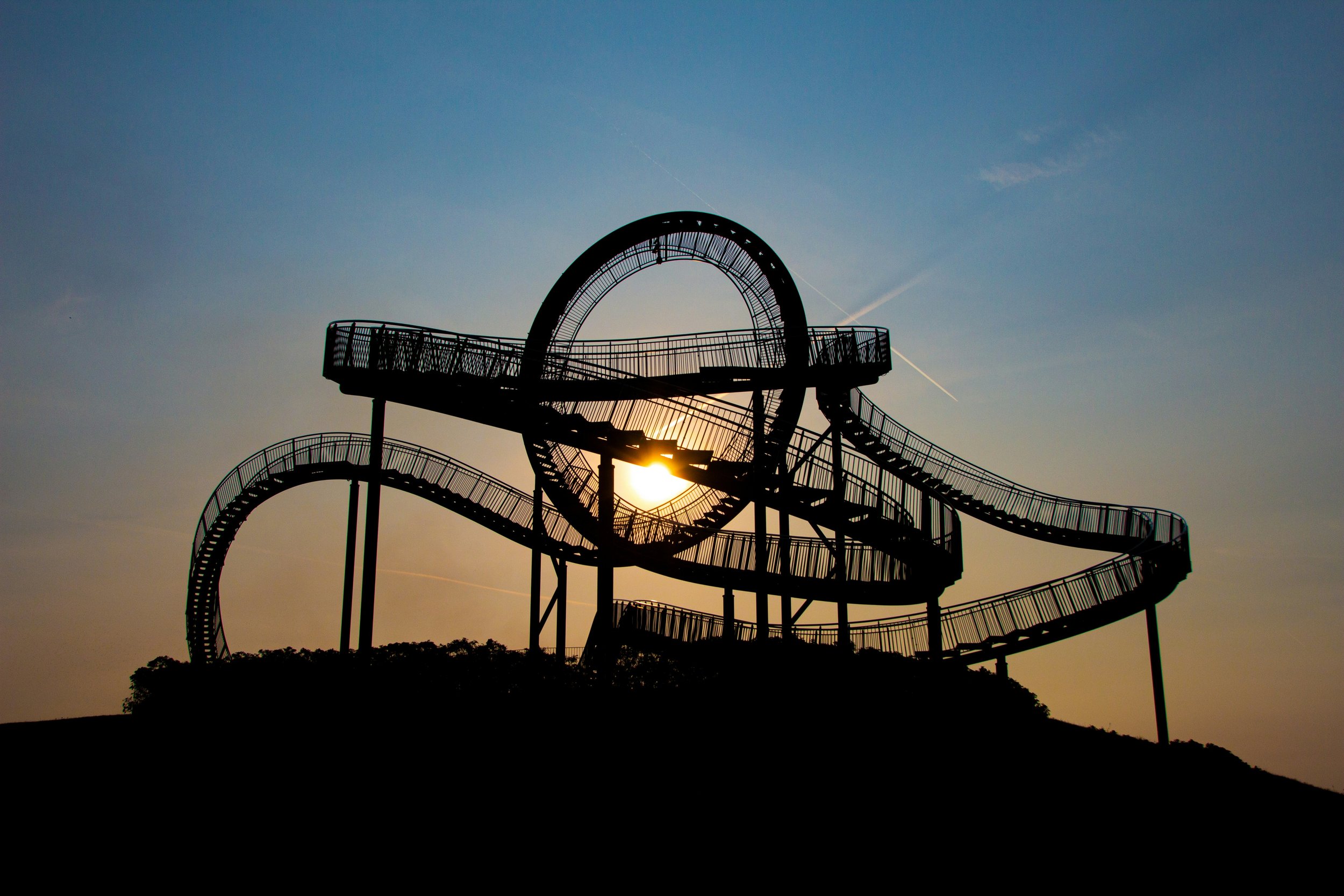Love Contradiction
Love is confusing.
It probably always has been, but it seems especially complicated now.
We live in a filter-enhanced, social media-infused, politically-divided climate. We are straddled between narrow, antiquated attitudes and inconceivably progressive powers. We are both passive spectators in our scrolling and we are intimately impacted by the endless feed of information at our fingertips.
We flounder in contradiction. We need safety, we want certainty, and we crave change.
We seem to know more, but understand less about love and how the world works.
As we navigate family pressures, social comparisons, and childhood fantasies, we try to make high-stakes decisions about our future. We bring generations of complex cultural and social expectations into nearly every relational interaction. We encounter conflicting messages ranging from “You deserve better” to “It could be worse.” We are told not to depend on anyone else to make us happy and fulfilled, and yet, studies show that people in meaningful relationships tend to be healthier and happier.
It’s confusing!
As we mature we tend to approach love more strategically. We become fluent in the vernacular of “love languages,” identify our enneagram number, and deconstruct our attachment styles and relational trauma. We make lists about our dream partner and our non-negotiables. Someone I know has even created a spreadsheet to highlight and cross reference her takeaways from previous partners to clarify what works and doesn’t work for her in relationships.
We have brought a scientific and cost-benefit analysis approach to this business of love.
Online dating (curating and perusing profiles, responding to messages, coordinating meetups, etc) has been referred to as a full-time job. Analysis paralysis, dating fatigue, and disillusionment are rampant as more people withdraw from daunting dating prospects or settle for unfulfilling partnerships to avoid the risk of starting over.
This is all happening in the context of global conversations about the health risks of loneliness and social isolation. A significant number of people continue to struggle to return to pre-pandemic functioning. Some express zero desire to do so. Yet, many yearn for connection, belonging and the desire to feel seen, understood, and valued. Vigilance about health risks, fear of rejection, ambivalence about dating culture, and hopelessness about the prospects keep people caught in a vicious cycle.
Love can be elusive and illusory.
It’s unpredictable and enigmatic.
Cliches like “opposites attract” and “it happens when you’re least expecting it,” hold some truth. Love is a mystery.
What if we stopped trying so hard to control it? What if we let go and put our arms in the air like we’re on an exhilarating downward descent of a rollercoaster?
Of course in order to surrender to the thrill of a rollercoaster with no hands, we must trust in the safety of that which holds us in our seat. What holds us in our seat, metaphorically-speaking, is our sense of self.
We don’t need to be perfectly securely attached or completely self-actualized. We just need to have an honest idea of who we are (including our flaws and imperfections) and an ongoing willingness to evolve with the inevitable uncertainty of life.
Some say it’s imperative to hone in on what you’re looking for, set your goals, and be super specific in your expectations. That approach works for some. But often times, love is unsuspecting. It doesn’t play out the way we expected, imagined, or hoped it would. That is not to say that it doesn’t play out all.
Love is often found in surprising and unlikely places.
All one has to do is reference the New York Times “Modern Love” column to realize how love crosses conventional, generational, socioeconomic, racial, gender, and geographic lines.
Love can be countercultural and contradictory. We discover it in reconciliation and redemption. It can be larger than life or simple and subtle. It rebels against reason and defies control. It’s frustrating and refreshing.
Might we find relief if we accept that love is fickle? It’s not personal.
Can we open our mind and heart to possibilities we’ve never entertained?
Could we give ourselves permission to have fun in our exploration of love?
Rather than trying to control or manage our pursuit of a partner, white knuckling our way into love, what if we let go and throw our hands in the air. Not in defeat. In liberation and in trust.
In order to let go we must anchor into a deep, inner sense of safety:
Feel the love already present in your life. Who/what/where do you experience love? Whether it’s at work, in a dance class, through a memory, or cuddling up with a pet, access the love that exists in your life. Feel the sensations of those loving experiences in your body.
Move through the fear. Literally, move! They say that action is the antidote to fear. This does not require any grand or dramatic gestures. Small steps are just as effective. Something as small and simple as breathing in and out can help us dissolve fear. The more we move through the places that scare us, the less hold our fear has over us.
Trust in your inherent resilience and worthiness. Take inventory of the challenges you have overcome in your life. Honor the skills and lessons you’ve learned. Give yourself a chance to grow, strengthen, and discover more about yourself. This is a lifelong endeavor.
Love can look and feel differently than we ever imagined.
We may discover love in a place or in a purpose. Open your mind and take your time, else you miss something interesting. As we approach love fearlessly, we cultivate more clarity, faith and courage. Tap into your willingness to venture into the unknown. Act as though you have nothing to lose, and learn something new about yourself in the process. Instead of fearing the unpredictability of love, throw your hands in the air willing to experience the surprise and possibility of it all!





